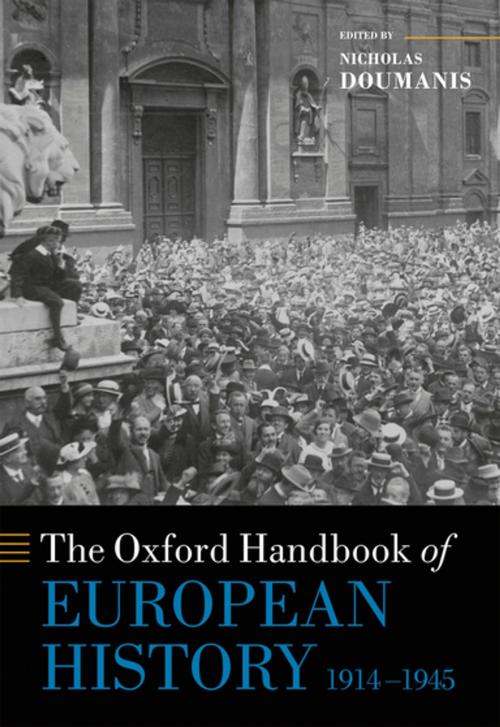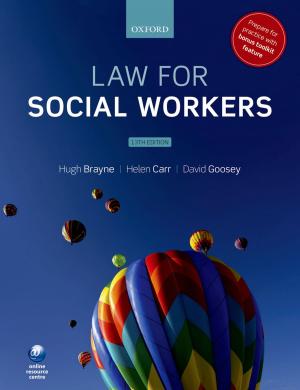The Oxford Handbook of European History, 1914-1945
Nonfiction, History, Germany, Social & Cultural Studies, Political Science| Author: | ISBN: | 9780191017766 | |
| Publisher: | OUP Oxford | Publication: | May 5, 2016 |
| Imprint: | OUP Oxford | Language: | English |
| Author: | |
| ISBN: | 9780191017766 |
| Publisher: | OUP Oxford |
| Publication: | May 5, 2016 |
| Imprint: | OUP Oxford |
| Language: | English |
The period spanning the two World Wars was unquestionably the most catastrophic in Europe's history. Despite such undeniably progressive developments as the radical expansion of women's suffrage and rising health standards, the era was dominated by political violence and chronic instability. Its symbols were Verdun, Guernica, and Auschwitz. By the end of this dark period, tens of millions of Europeans had been killed and more still had been displaced and permanently traumatized. If the nineteenth century gave Europeans cause to regard the future with a sense of optimism, the early twentieth century had them anticipating the destruction of civilization. The fact that so many revolutions, regime changes, dictatorships, mass killings, and civil wars took place within such a compressed time frame suggests that Europe experienced a general crisis. The Oxford Handbook of European History, 1914-1945 reconsiders the most significant features of this calamitous age from a transnational perspective. It demonstrates the degree to which national experiences were intertwined with those of other nations, and how each crisis was implicated in wider regional, continental, and global developments. Readers will find innovative and stimulating chapters on various political, social, and economic subjects by some of the leading scholars working on modern European history today.
The period spanning the two World Wars was unquestionably the most catastrophic in Europe's history. Despite such undeniably progressive developments as the radical expansion of women's suffrage and rising health standards, the era was dominated by political violence and chronic instability. Its symbols were Verdun, Guernica, and Auschwitz. By the end of this dark period, tens of millions of Europeans had been killed and more still had been displaced and permanently traumatized. If the nineteenth century gave Europeans cause to regard the future with a sense of optimism, the early twentieth century had them anticipating the destruction of civilization. The fact that so many revolutions, regime changes, dictatorships, mass killings, and civil wars took place within such a compressed time frame suggests that Europe experienced a general crisis. The Oxford Handbook of European History, 1914-1945 reconsiders the most significant features of this calamitous age from a transnational perspective. It demonstrates the degree to which national experiences were intertwined with those of other nations, and how each crisis was implicated in wider regional, continental, and global developments. Readers will find innovative and stimulating chapters on various political, social, and economic subjects by some of the leading scholars working on modern European history today.















